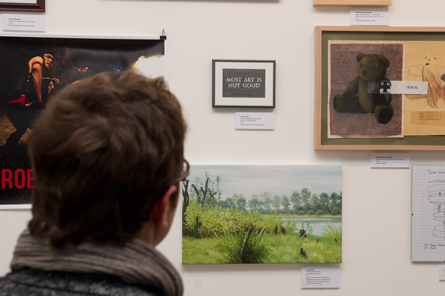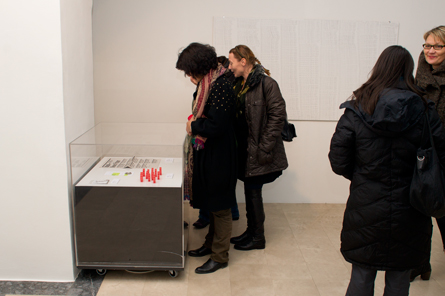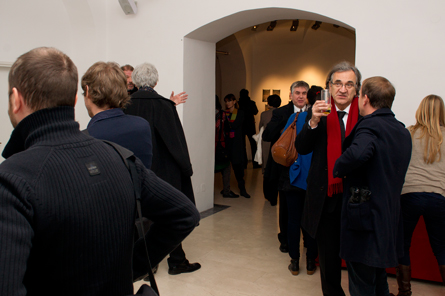
 |
|||||
Selection of works from the CAC Bukovje collection
(23 November - 11 December, 2011) |
|||
Artists: Collaboration with SCCA Ljubljana. CAC Bukovje presented its strategies and collection in an exhibition presenting two alternatively run art institutions (curated by Sasa Nabergoj and Sonja Zavrtanik of SCCA Ljubljana). Many art collections are built out of love for art. And then there are those who are assembled as an investment. A well selected art collection can serve to represent the profile of an institution or the taste of a private collector, but a collection is also a signifier of status. As such, it is very much part of a hierarchic system, one that strives to manifest positions and maintain order. It is a capitalist structure where art is treated as stocks and thereby a target for speculation. Within such a structure a gallery might reject a buyer if her/his collection does not have enough status and thus cannot further the economic value of the piece by its inclusion in their collection. A collector can also effectively sabotage an artist’s career if she/he decides to sell off the works of a specific author. Artists are very much at the mercy of the players within this system, but at the same time, the artists should preferably not stress any commercial aspirations of their own publicly. Nobody wants to hear that the higher goal with an art piece is to successfully place it within a market system. Ideally, the artists should have idealistic reasons for making their work, and it should be executed according to a politically leftish agenda with an oppositional stance against established power structures. But of course, at the same time, the artist should in reality comply with the system. |
|||
There is however one thing a capitalist system cannot deal with. It is called “for free”. The capitalist strategies of domination are basically based on two actions, raising or lowering prices. There is no way of opposing something that is offered for free. In 2006 British authorities were severely upset with Mozilla when they figured out that the organisation was giving their Firefox browser away for free. As they stated, if companies like Mozilla give away their software for free, it becomes very difficult for the authorities to enforce UK anti-piracy legislation. In other words; only if everything has a price, the system can function smoothly. As soon as one starts giving things away for free, one becomes a threat to the order. It is in fact rather easy to defy the system, as long as one is okay with being poor. And judging by how many people have little choice in the matter and have to be poor whether they like it or not, perhaps the world is quite ready for an alternative economy. Curated by Nina Slejko and Conny Blom |
|||

|

|

|

|
   |
|
|
||||
| supported by |  |
|||
 |
||||